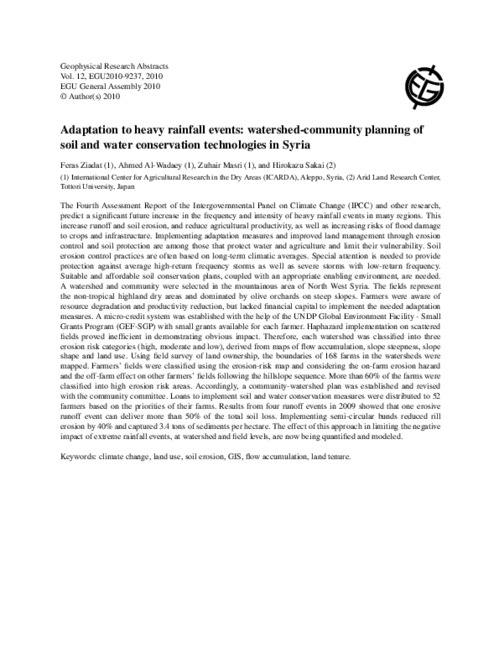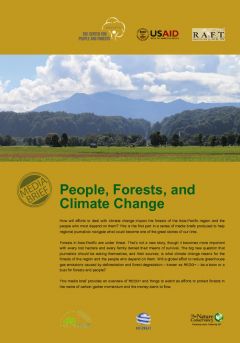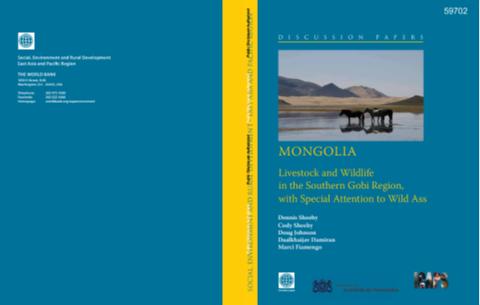Adaptation to heavy rainfall events: watershed-community planning of soil and water conservation technologies in Syria
The Fourth Assessment Report of the Intergovernmental Panel on Climate Change (IPCC) and other research, predict a significant future increase in the frequency and intensity of heavy rainfall events in many regions. This increase runoff and soil erosion, and reduce agricultural productivity, as well as increasing risks of flood damage to crops and infrastructure. Implementing adaptation measures and improved land management through erosion control and soil protection are among those that protect water and agriculture and limit their vulnerability.









